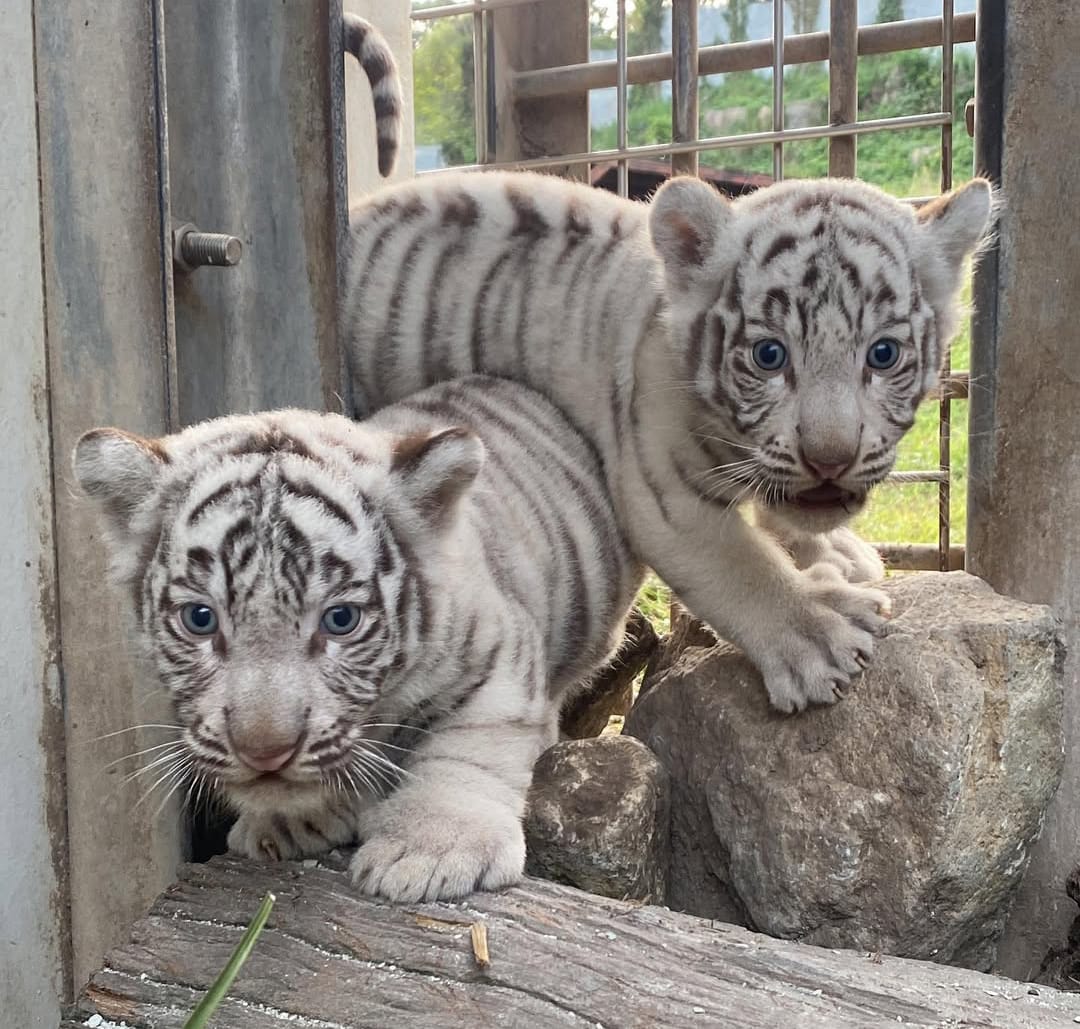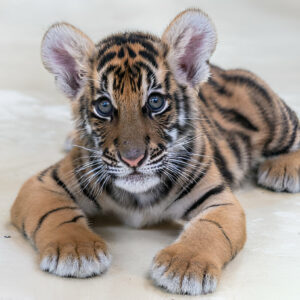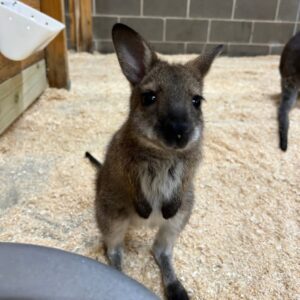Description
Discover the Enchanting White Tiger Cub: A Unique Exotic Pet Option
The white tiger cub, with its striking snowy coat and mesmerizing blue eyes, is one of the most captivating creatures in the animal kingdom. While white tigers are not a separate species but a color variant of the Bengal tiger, their rarity and beauty make them highly sought after by exotic pet enthusiasts. However, adopting a white tiger cub is a significant responsibility that requires specialized care, a deep understanding of their needs, and compliance with legal regulations. If you’re considering bringing a white tiger cub into your life, let’s explore what makes them so extraordinary and what it takes to care for them.
Introduction to White Tiger Cubs
White tigers are a rare color morph of the Bengal tiger (Panthera tigris tigris), caused by a genetic mutation that reduces pigmentation. Their stunning white fur, black stripes, and piercing blue eyes make them a symbol of beauty and power. White tiger cubs are particularly adorable, but they grow into large, powerful animals that require expert care and a safe, spacious environment.
Physical Characteristics
White tiger cubs are born with their iconic features:
- Coat: Their white fur is accented with dark brown or black stripes, creating a unique and striking pattern.
- Eyes: Their bright blue eyes are a result of the same genetic mutation that affects their fur color.
- Size: While cubs are small and cuddly, they grow rapidly. Adult white tigers can weigh between 400 to 600 pounds and measure up to 10 feet in length.
Behavior and Temperament
White tiger cubs are playful, curious, and highly energetic. They are social animals that form strong bonds with their caregivers during their early years. However, as they grow, their wild instincts become more pronounced. White tigers are solitary by nature and can be unpredictable, even when raised in captivity. They require experienced handlers who understand their behavior and can provide a safe and enriching environment.
Care Requirements for White Tiger Cubs
1. Housing
White tiger cubs need a large, secure enclosure that provides ample space for them to roam, climb, and explore. As they grow, their enclosure must be expanded to accommodate their size and strength. Outdoor spaces with natural elements like trees, rocks, and water features are ideal.
2. Diet
White tigers are obligate carnivores, meaning their diet must consist entirely of meat. A balanced diet includes raw or cooked meat, such as beef, chicken, or venison, supplemented with bones for dental health. Avoid processed foods or plant-based diets.
3. Exercise and Enrichment
White tiger cubs are highly active and require plenty of mental and physical stimulation. Provide toys, climbing structures, and opportunities to explore to keep them engaged. Interactive play sessions with their caregivers are also essential for their development.
4. Social Needs
While white tiger cubs are social and form bonds with their caregivers, they are solitary animals as adults. Proper socialization from a young age is crucial, but they may not get along with other pets or animals.
Legal Considerations
Owning a white tiger cub is subject to strict regulations that vary by location. Many countries and states require permits, veterinary checks, and proof of adequate housing. Failure to comply with these laws can result in fines, confiscation of the animal, or legal action. Always research local laws before considering white tiger cub adoption.
Why Adopt a White Tiger Cub?
Adopting a white tiger cub is a unique opportunity to connect with one of nature’s most majestic and rare creatures. Their beauty, intelligence, and playful nature make them a truly extraordinary companion. However, white tiger ownership is not for everyone. It requires a significant commitment of time, resources, and expertise to ensure their well-being.
Interesting Facts About White Tigers
- White tigers are not albinos; they have a genetic condition called leucism that reduces pigmentation.
- They are extremely rare in the wild, with most white tigers living in captivity.
- White tigers are often bred in captivity, but this practice is controversial due to genetic health issues.
- They share the same behaviors and instincts as their orange Bengal tiger counterparts.
Conclusion
The white tiger cub is a magnificent and awe-inspiring animal that demands respect, understanding, and dedication from its owners. If you are prepared to provide the specialized care and environment that a white tiger cub needs, you could be rewarded with a lifelong bond with one of nature’s most stunning creatures. Before proceeding, ensure that you fully understand the responsibilities and legal requirements associated with white tiger ownership.
At Exotic Pets Care Center, we are committed to helping you find the perfect exotic companion. Contact us today to learn more about adopting a white tiger cub and to explore other exotic pet options available to you.







Reviews
There are no reviews yet.